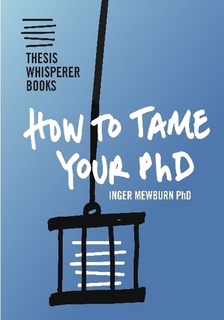Research Topic Statement
The focus of my research is the link between the pervasiveness of technology and the decline in critical literacy writing skills as demonstrated by the rise in plagiarism (Gabriel 2010) and students inability to produce authentic writing, which demonstrates critical thinking. The importance of this issue isn’t to turn back the clock on how we are teaching writing skills, but identify a way to work strategically with ICT in the classroom.
Draft Research Question
How can information technologies, engage teenagers to develop their persuasive writing skills and demonstrate critical thinking whilst minimising the opportunities for plagiarism?
Research Topic Statement
For many years the media has speculated about the decline in student’s writing skills, citing the rising issue of plagiarism in the classroom and at university (Gabriel 2010). The current generation has been labeled the “copy and paste generation” due to high use of technology, different study habits to previous generations and the emergence of disruptive technologies in the classroom and home. Our school’s 2012 NAPLAN results show that our 2013 Year 8 cohort have shown excellent reading skills but have very weak persuasive writing skills. Year 8 teachers verify that the students have shown poor authentic writing ability in both Humanities and English.
The Pew/Internet report “Writing, Technology and Teens” (Lenhart, Arafeh, Smith, Macgill; 2008) confirms that although teenagers are writing more than ever, but their easy access to information and their unstructured approach often leads to laziness when it comes to more structure to their writing processes. This laziness and easy wide spread access to information can lead to plagiarism.
My research interest has come about from many years of teaching Humanities and seeing the way in which teachers use ICT in their classrooms without regard to how it might be impacting on traditional skill development. Often they are naïve to the implications of incorporating ICT into a task that might have normally been done offline therefore
References
Gabriel, T. (2010). Plagiarism Lines Blur for Students in Digital Age. The New York Times, [online] 1st August. Retrieved from: http://www.nytimes.com/2010/08/02/education/02cheat.html [Accessed: 25th March 2013].
Lenhart, A., Arafeh, S., Smith, A., & Macgill, A. (2008). Writing, technology and teens. Retrieved from http://pewinternet.org/Reports/2008/Writing-Technology-and-Teens.aspx
Evering, L.C. & Moorman, G. (2012). Rethinking Plagiarism in the Digital Age. Journal of Adolescent & Adult Literacy, 56(1), 35–44. doi: 10.1002/jaal.100
McCord, A. (2009). Detection and Deterrence of Plagiarism in Online Learning Environments. In P. Rogers, G. Berg, J. Boettcher, C. Howard, L. Justice, & K. Schenk (Eds.), Encyclopedia of Distance Learning, Second Edition (pp. 604-615). Hershey, PA: . doi:10.4018/978-1-60566-198-8.ch087






